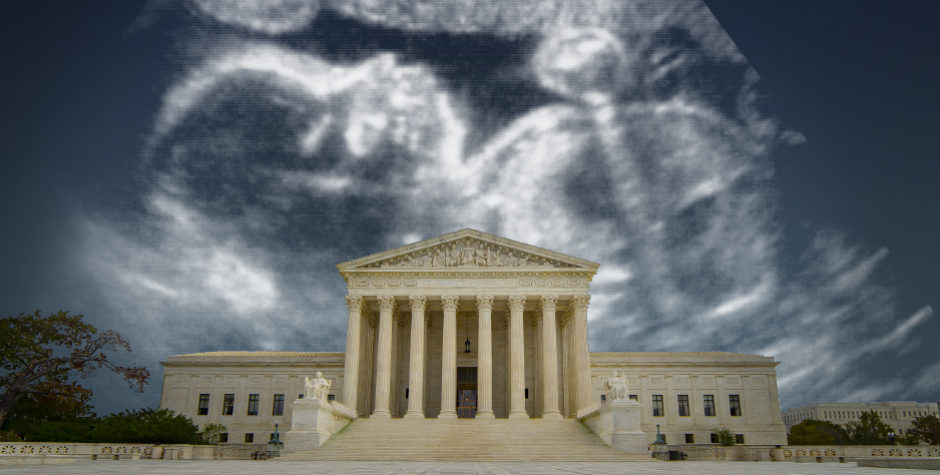ACLJ Files Supreme Court Brief in Support of Religious Freedom Over the Abortion-Pill Mandate
As explained in more detail here, the Third Circuit Court of Appeals has imposed a nationwide injunction against federal regulations that provide religious and moral exemptions to complying with the HHS abortion-pill mandate.
Today, on behalf of over 415,000 ACLJ supporters, we filed an amicus curiae brief with the U.S. Supreme Court in support of the Trump Administration’s petition for a writ of certiorari, asking the high Court to reverse the Third Circuit.
As explained in our brief, granting religious exemptions “is fully consistent with the long and well-established history in this country of governmental accommodation of religious beliefs and practices.” The Father of Constitution, James Madison, wrote that one’s duty to the “Creator . . . . is precedent, both in order of time and in degree of obligation, to the claims of Civil Society.” George Washington, the Father of the Country, noted that “the establishment of Civil and Religious Liberty was the Motive that induced me to the field of battle.”
This dedication to religious freedom is what impelled Congress in 1993 to pass the Religious Freedom Restoration Act (“RFRA”) in an all-but unanimous fashion. The law was supported by a diverse group of religious believers and organizations, including Christians, Jews, Muslims, Sikhs, Humanists, the ACLU, the Christian Legal Society, Americans United for Separation of Church and State, and the ACLJ.
RFRA has been called a “super-statute,” because, by its own terms, it applies “to all Federal law, and the implementation of that law, whether statutory or otherwise.”
In essence, RFRA provides that the government cannot substantially burden the religious exercise of a person unless the government demonstrates: (1) it has a compelling interest in doing so, and (2) it has chosen the least restrictive way of furthering that interest. That test, often called “strict scrutiny,” has been described by the Supreme Court as “the most demanding test” used to measure government action.
Despite RFRA’s sweeping force, and ignoring the religious principles on which RFRA is founded, the Third Circuit held that RFRA doesn’t support the Administration’s efforts to offer a religious exemption to those entities who cannot comply with either the abortion-pill mandate or its so-called “accommodation” (which, for many groups, amounts to nothing more than an alternate way for them to violate their religious principles).
The Third Circuit got it wrong.
First, it is not the role of courts to decide whether a religious claimant’s own theological judgment about what constitutes moral complicity is right or wrong. If religious groups or pro-life business owners believe that by participating in the “accommodation” they would compromise their religious principles, that should be end of the story, where failure to participate makes them subject to staggering statutory penalties.
Second, the Third Circuit erred when it placed the alleged “burden” on employees obtaining abortion-inducing drugs over and above the interests of religious claimants. If the abortion-pill mandate were as important an interest as the Third Circuit thinks it is, why did Congress not impose the mandate on a great number of employers, such as those with grandfathered plans and those with less than 50 employees? It’s bizarre to claim that cost-free access to abortion-pills in an employee health plan is an “interest of the highest order,” when so many employers do not have to comply with it for non-religious reasons.
Finally, we argue that RFRA provides a floor for religious freedom, not a ceiling. In other words, even if a court doesn’t think that a federal regulation violates RFRA, agencies should nonetheless be permitted to further RFRA’s underlying interests by granting a religious exemption where those agencies believe that the regulation can substantially burden religious exercise. When the government gives room for religious freedom to flourish it acts fully in line with our country’s traditions and commitments.
As we wrote in our brief:
The Third Circuit has wrongly thwarted the efforts of Petitioners to truly accommodate the religious exercise of employers pursuant to RFRA and our country’s longstanding commitment to the flourishing of religious freedom. Left undisturbed, the decision of the court below will impede future governmental efforts to respect the rights of religious conscience—the first freedom provided for in the Bill of Rights and the substantive right protected by RFRA.
If RFRA is to have the force and effect it was designed to have, the Supreme Court needs to intervene in this case and reverse the Third Circuit. Religious freedoms should not take a back seat to administrative regulations unless there is an urgent and pressing need to do so. In the case of the abortion-pill mandate, that alleged need is nothing more than smoke and mirrors.
We will keep you posted on whether the Supreme Court chooses to intervene in this case. That decision can come as early as next month.
